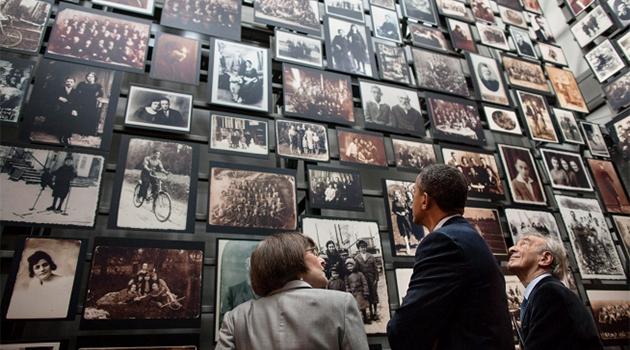Associated Press: Holocaust survivors reminded of WWII by COVID-19 pandemic

For Holocaust survivor Olga Weiss, the order to remain in her home means much more than just closing the door because of the novel coronavirus. The Associated Press reports that these days she is recalling how she and her parents had to hide for two years to avoid the Nazis looking for Jewish people in Belgium during the Second World War.
“This is almost like an echo of our youth, when we were children, the same feeling that you don’t know what will happen,” said the 83-year-old, who lives in a Chicago suburb. “We’re not thinking about the virus, we’re thinking about what happened to us back then.”
An estimated 400 000 Holocaust survivors remain alive today worldwide, and for many of them the pandemic caused by the novel coronavirus has revived feelings of fear, insecurity and powerlessness that they had not experienced since childhood. The novel coronavirus is sparking feelings of fear and recollection of trauma also among a significant part of the general public, but the current situation is especially having an emotional impact on the survivors of the Nazi genocide, according to psychologist Yael Danieli, who leads an organization for Holocaust survivors and their descendants.
The reactions, however, are not identical among members of this community. Some Holocaust survivors have the feeling during this pandemic that they should be an example of how to survive and wage war against it, Danieli said.
However, associations may creep into traumatized minds that seem extreme to others. Their fear of hospitalization, for example, may be likened to fear of being imprisoned in a concentration camp from which there is no escape, according to the psychologist.
The feeling of being “imprisoned” in their own homes, according to Danieli, may remind some Holocaust survivors of “the terrible time when they had to hide from the world in order to survive”. These old traumas had always become exacerbated by advanced age even before the world faced the crisis of the novel coronavirus.
Evidence of this, for example, are the cases recorded from retirement homes where Jewish residents have been afraid to use the showers. Colette Avital witnessed such a situation with her own eyes when, after the Second World War, she emigrated to Israel from Romania; she became an MP and is currently chair of the Center of Holocaust Survivors’ Organizations in Israel. Before Avital’s 97-year-old mother passed away, she used to cry out in her sleep “The Nazis are coming for us!”
Currently such concerns are increasing among Holocaust survivors because people know a threat to their lives is lurking beyond their front doors. “This is sparking panic among them,” Avital said.
Holocaust survivor André Stein, who was beaten up during the war in Budapest by troublemakers as he stood in line for bread and then left for dead on top of a pile of corpses, said the difference in the case of the novel coronavirus is that the enemy is invisible. “Now you can be walking down the street and be killed because the person next to you sneezes,” said the 83-year-old, who lives in Toronto, Canada and is the author of a book about children who survived the Holocaust.
While for most of those infected the novel coronavirus causes just mild symptoms, if any, in the form of coughing and fever, for some people, predominantly those who are older or who have chronic ailments, it can cause fatal pneumonia. “I don’t go outdoors much,” said 88-year-old Sidney Zoltak, who lives in Montreal and who hid from the Nazis with his family in Poland during the war in several locations, spending seven months in an underground bunker with no daylight at one point.
Zoltak believes himself to be fortunate – he fills his days with writing, talking with his son who delivers groceries to his front door and, thanks to the Internet, videochatting with his grandchildren and other Holocaust survivors; he recently celebrated Pesach with his family “virtually”. The 88-year-old is aware that many Holocaust survivors do not have this kind of good luck because they are cut off from contact with their families and are living in fear.
The Jewish Claims Conference, a New York-based association that strives to secure compensation for Holocaust victims not in Israel, has announced it will be distributing a total of USD 4.3 million in grants to organizations worldwide that care for a total of 120 000 Holocaust survivors in order to address the impact of the pandemic on this group. Weiss, who coordinates a group of about 20 other Holocaust survivors who were hidden from the Nazis as children, compares the fear of starvation during the war to the fear caused by today’s crisis, when some shops are grappling with a lack of goods, “however absurd that may seem”.
Weiss knows that today she does not have to be quiet out of fear that the Gestapo is waiting outside her front door. She also knows that she won’t be risking detection and then death just by listening to music, for example.
“The feelings are the same, though,” she said. “It’s the same fear about what might happen to us… a fear we experienced at the beginning of our lives and that we are now experiencing again at the end.”
